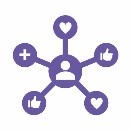Rare Disease Diagnostics Development Services
Diagnostic development aims to provide fast and reliable strategies for disease identification and detection. With the continuous innovation in technology of medical sciences, diagnostic development has greatly improved the early diagnosis and individualized therapeutics of rare diseases. Our company provides comprehensive services and mature solutions to help you speed up the diagnostic development in rare diseases.
Diagnostics Development for Rare Diseases
Individuals with rare diseases often face the challenges of long waiting periods for diagnosis and difficulty in accurate diagnosis. This process leads to a deterioration of the condition, causing a significant burden on the individuals with rare diseases. In order to improve the diagnostic efficiency and accuracy of rare diseases, a variety of cutting-edge technologies led by high throughput next-generation sequencing technology have been introduced into the diagnosis of rare diseases, which not only deeply explore the genetic pathogenesis, and provide new ideas and directions for therapeutics and research.
 Fig.1 Technologies and methods to diagnose rare diseases when Exome Sequencing (ES) is unrevealing (Marwaha, S.et al, 2022)
Fig.1 Technologies and methods to diagnose rare diseases when Exome Sequencing (ES) is unrevealing (Marwaha, S.et al, 2022)- Karyotype of Rare Diseases
Karyotype reveals the specific statues of a person's entire chromosome. Conditions like Turner syndrome, Klinefelter syndrome, and certain variant forms of leukemia exhibit distinct chromosomal abnormalities. Analyzing the number and structure of chromosomes reveals the relationship between chromosomal irregularities and diseases. It benefits rapid diagnosis of these rare diseases and provides genetic references for family planning. - Genome and Epigenome of Rare Diseases
Rare diseases are the result of both genetic and environmental factors. Using the information of genome and epigenome, researchers can identify specific genetic mutations and disclose the regulation of epigenetic modifications on the transcriptome, proteome and metabolome. These results help researchers understand the comprehensive risks on rare diseases and provide personalized precision healthcare. - Biomarkers of Rare Diseases
Biomarkers reflect the occurrence, development and outcome of rare diseases. Mutated nucleic acids, dysregulated levels of genes, proteins and metabolites, as well as abnormal cell morphology, are specific symptoms of distinct rare diseases, which help researchers understand the genetic mechanisms and pathogenesis of rare diseases, and guide the discovery of therapeutic targets.
Our Services
Diagnostics development improves the ability to diagnose rare diseases and provide important technical support and resource integration platform for rare disease research our company has a complete set of mature diagnostics development system, providing you with an experienced high-level team and the necessary resources to support the medical development of rare diseases. Our services include but are not limited to:
- G-band Karyotyping
- R-/ Q-/ T-band Karyotyping
- Spectral Karyotyping
- Digital Karyotyping
- 1/29 Translocation Test
- Nucleic Acids Biomarker
- Proteins Biomarker
- Lipids Biomarker
- Metabolites Biomarker
- Imaging Type Biomarker
Artificial Intelligence Service
- Mutation Detection and/or Prediction
- Disease Characterization
- Biomarker Detection
Diagnostics Development Platforms
- Next-Generation Sequencing (NGS) Platforms
- Microfluidic Single cell Sorting System
- Microarray Platforms
- Fluorescence Activated Cell Sorter
- Mass Spectrometers
- Big Data Analysis Tools
- Machine Learning Algorithms
- Assay Development Tools
Our Advantages

Time-saving services with high efficiency

Professional and experienced scientists

Complete project designing and reporting

Numerous service cases and customer praise
With rich project experience and professional multidisciplinary researchers, our company provides one-stop diagnostics development service to help you research new methods and strategies for the diagnosis of rare diseases. If you are interested in our diagnostics development services, please feel free to contact us for more information.
Reference
- Marwaha, S., et al. A guide for the diagnosis of rare and undiagnosed disease: beyond the exome. Genome Med, 14, 23 (2022).
All of our services and products are intended for preclinical research use only and cannot be used to diagnose, treat or manage patients.
